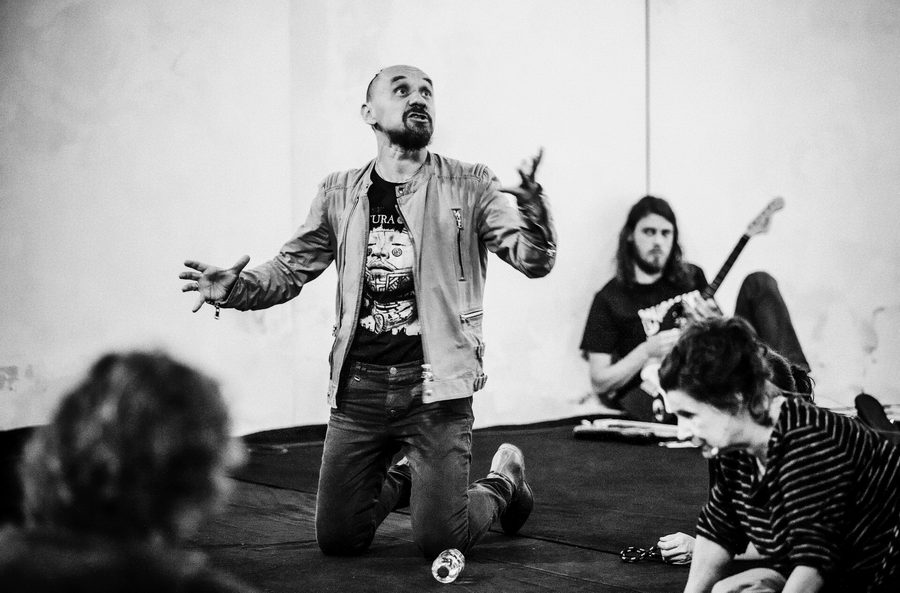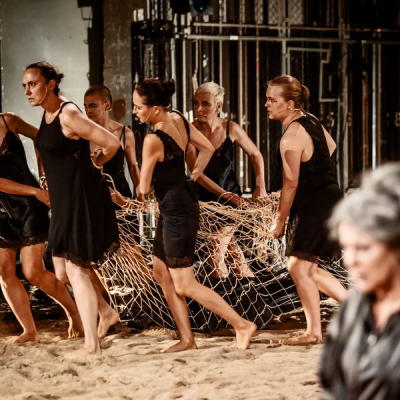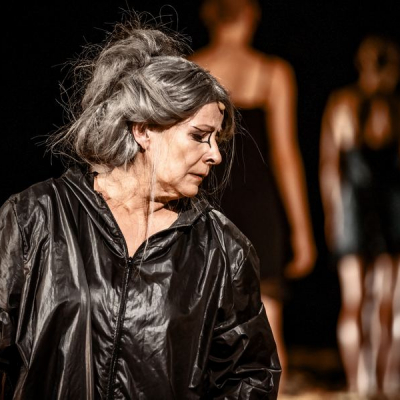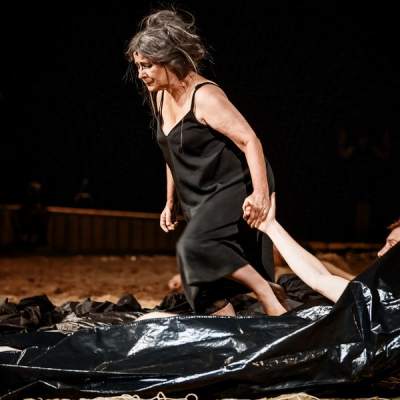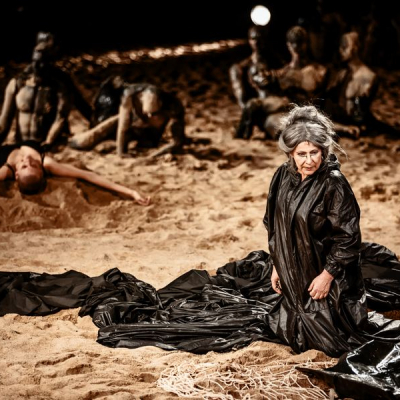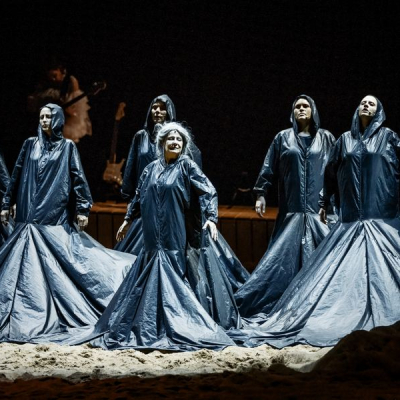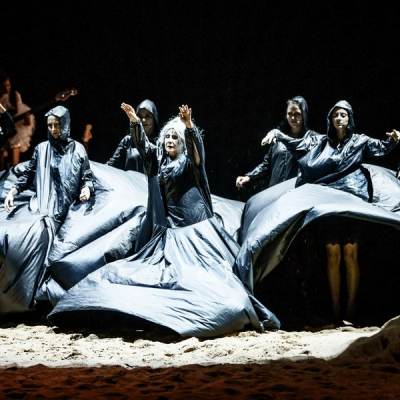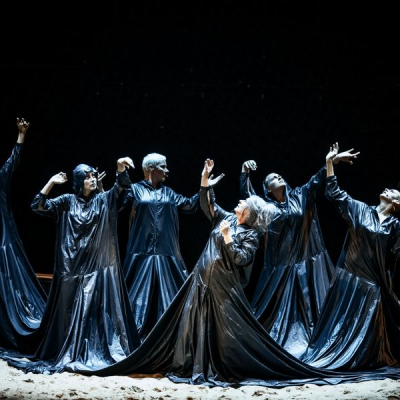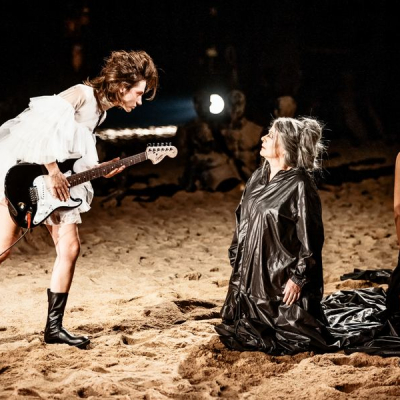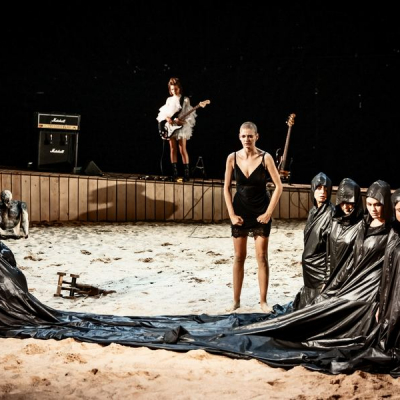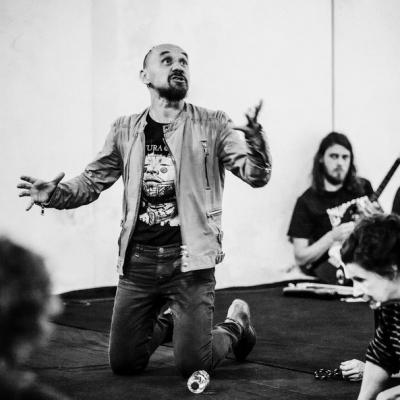The Trojan Women (Gdansk) 18
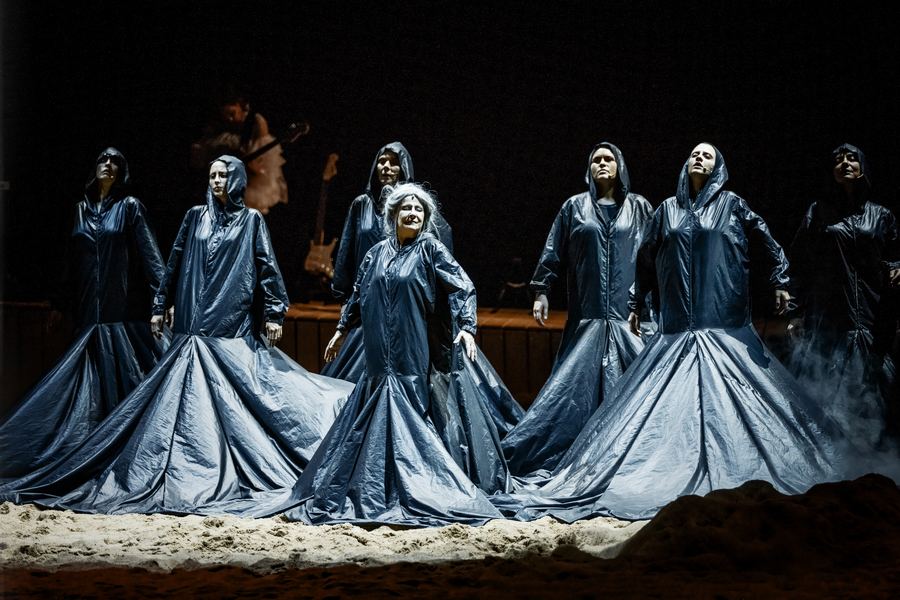
Wybrzeże Theatre, Gdansk, Poland
Director: Jan Klata
Performed in Polish with Hungarian and English subtitles
2 hours 30 minutes with 1 breaks.
In The Trojan Women, Eurypides showed us what Homer did not tell us in THE ILIAD. What was the morning after the fall of Troy like. How women, until then representatives of the Royal lineage, have been pushed to the very bottom of human existence. What is their relationship with the conquerors, representatives of high Hellenistic culture, who by murdering the innocent and defenceless cross the boundaries of barbarism. While working on this production, the authors attempted to look at the process of maturing into vengeance - the victims against the perpetrators. Writing THE TROJAN WOMEN in the context of the ongoing Peloponnesian War, Euripides openly criticised the Athenians' imperial ambitions. He strove to make them understand that in any armed conflict there are no winners or losers. The Greeks in Homer's epic, like Euripides' Athenian contemporaries, believed they were invincible and this brought doom upon them.
Actors
Dorota Kolak –Hecuba
Jacek Labijak – Poseidon
Sylwia Góra-Weber – Athena
Piotr Biedroń - Apparition Polydora
Magdalena Boć – Akantha
Sylwia Góra-Weber – Apollonia
Agata Bykowska – Enyo
Małgorzata Brajner – Sophia
Cezary Rybiński –Talthybius
Małgorzata Gorol – Cassandra
Magdalena Gorzelańczyk – Polyxena
Michał Kowalski – Odysseus
Antoni Łaciński/Marcel Pawłowski –Astyanax
Katarzyna Dałek – Andromache
Michał Jaros –Neoptolemus
Grzegorz Gzyl – Menelaus
Katarzyna Figura – Helen
Robert Ninkiewicz – Agamemnon
Krzysztof Matuszewski – Polymestor
Jacek Labijak – Theoclymenus
Stage- and costume designer: Mirek Kaczmarek
Choreographer: Maćko Prusak
Dramaturge: Olga Śmiechowicz
Composer: Michał Nihil Kuźniak
Jan Klata


